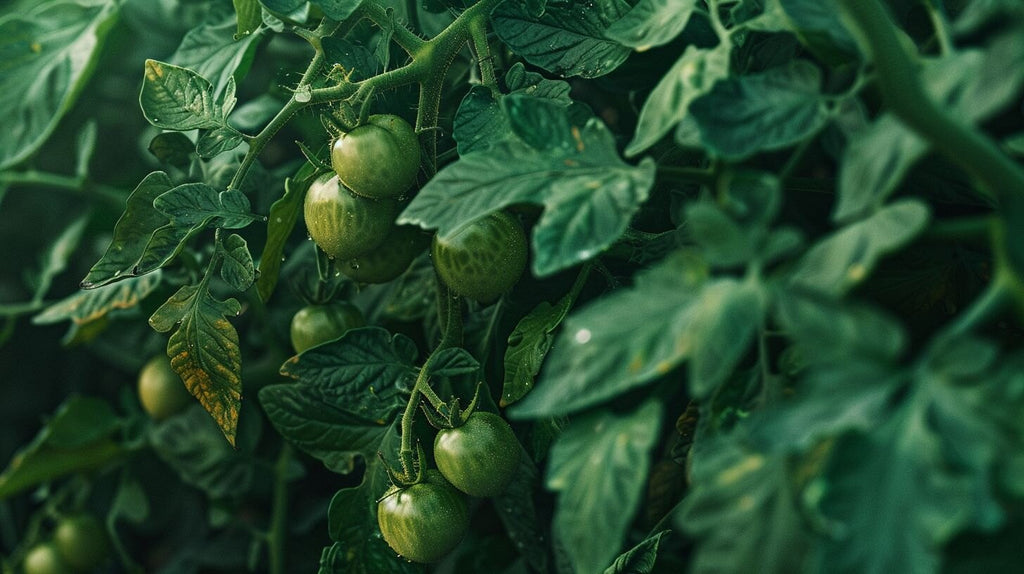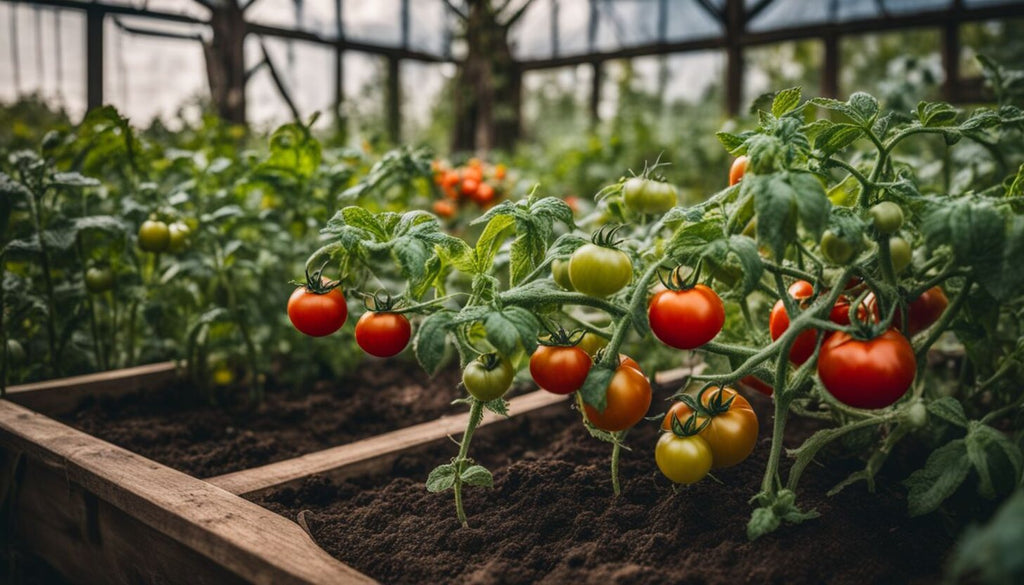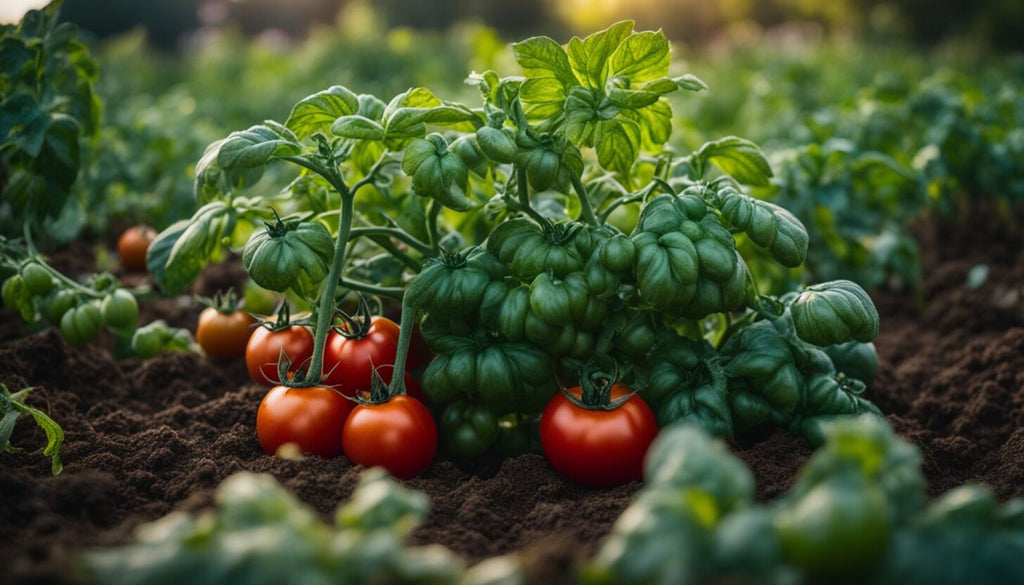The Benefits Of Using Epsom Salt For Tomatoes: A Complete Guide
Epsom salt for tomatoes has emerged as a popular, natural remedy among gardeners seeking to boost their tomato plant's health and productivity.
This magnesium-rich compound, when used correctly, can significantly enhance the growth and yield of tomato plants by addressing magnesium deficiency, a common issue that can hinder a plant's ability to produce fruit.
In this article, we will explore the myriad benefits of using Epsom salt for tomatoes, from improving fruit quality and plant vigor to preventing blossom end rot and enhancing overall plant health.
Understanding Epsom Salts
Epsom salts are a type of magnesium sulfate. It gives plants the magnesium they need. This mineral helps with seed starting, growing strong cell walls, and improving plant uptake of nitrogen, phosphorus, and sulfur. Gardeners use Epsom salts to feed plants like tomatoes when they show signs of magnesium deficiency.
Your soil has a specific pH level, which affects how well plants get nutrients. Before using Epsom salts, test your soil's pH. A soil test kit can tell you if your garden needs more magnesium or not.
If the pH is too high, adding Epsom salt might help your tomatoes get enough magnesium from the ground to grow healthy and strong.
The Role of Epsom Salt in Tomato Cultivation

Epsom salt plays a vital role in tomato cultivation by fixing yellowing leaves, enhancing flavor, preventing blossom end rot, and increasing nutrient uptake.
Fixes Yellowing Leaves
Yellowing leaves on tomato plants signal a nutrient deficiency. Epsom salt, with its magnesium sulfate, can be the quick fix these plants need. Gardeners find that mixing it into water and applying it directly to the soil gives their tomatoes a much-needed boost in magnesium. This helps the green coloring return to the leaves by aiding in chlorophyll production.
Some gardeners prefer using Epsom salt as a foliar spray for faster absorption through tomato plant leaves. Care is needed because too much magnesium might harm calcium uptake. It’s important to strike a balance so that plants stay healthy and green.
Enhances Flavor
Epsom salt makes tomatoes taste better. It has magnesium and sulfur, which are good for flavor. These elements play a big part in how fruit grows and tastes. Gardeners often seek out ways to improve their tomato flavor profile, and Epsom salt is a simple trick they can use.
As the plants get enough magnesium, the tomatoes become more delicious. This improvement happens because magnesium is key to developing fruits that make your mouth water. The next topic explores how Epsom salt also helps prevent blossom end rot in tomatoes.
Prevents Blossom End Rot
Better-tasting tomatoes aren't the only perk; Epsom salt also helps stop blossom end rot. This issue makes tomatoes turn brown at the bottom and ruins the fruit. It happens when there's not enough calcium in the plant. Magnesium from Epsom salt lets plants use calcium better, which fights off this problem.
By adding this mineral to your soil, you give your tomatoes a fighting chance against blossom end rot. The sulfur in it can lower the chances of this rot as well. You'll see healthier fruits that are safe from those ugly brown spots.
Plus, using Epsom salt is part of smart organic gardening practices to keep veggies like tomatoes strong and whole without harsh chemicals.
Increases Nutrient Uptake
Epsom salt increases nutrient uptake for tomato plants, aiding in their overall growth and health. The magnesium and sulfur in Epsom salt support the plant's ability to absorb essential nutrients from the soil, leading to stronger, more robust tomato plants with improved fruit production.
By incorporating Epsom salt into your tomato cultivation routine, you can ensure that your plants are receiving the necessary elements for optimal development and yield.
Epsom Salt as a Tomato Fertilizer

Epsom salt can be used as a fertilizer for tomato plants, as it helps speed up germination and boosts growth and vigor. It also aids in nutrient absorption and root development for healthier, more robust tomato plants.
Speeds Up Germination
Epsom salt helps tomatoes to germinate faster. The magnesium and sulfur in Epsom salt promote healthy and quick seed sprouting. This means less waiting time for your tomato seeds to turn into seedlings, getting you closer to enjoying fresh homegrown tomatoes sooner.
Soil rich in Epsom salts can be beneficial for the rapid growth of tomato plants. The magnesium present in Epsom salt aids in promoting quicker germination of tomato seeds, ensuring a good start for your tomato gardening journey.
Boosts Growth and Vigor
Applying Epsom salt to your tomato plants contributes to their growth and vitality. The magnesium in Epsom salt aids in the activation of enzymes, helping tomatoes absorb essential nutrients like nitrogen and phosphorus from the soil, which are crucial for robust plant growth.
Additionally, magnesium facilitates the creation of chlorophyll, enabling the leaves to capture sunlight more effectively for photosynthesis.
By supplying supplemental magnesium, ensuring a steady nutrient uptake, and improving chlorophyll production, Epsom salt can significantly improve the overall health and vigor of your tomato plants.
Read More: How To Prevent and Manage Bacterial Wilt in Tomatoes
How to Apply Epsom Salt to Tomato Plants
To apply Epsom salt to tomato plants:
- Dilute 2 tablespoons of Epsom salt in a gallon of water.
- Use the solution as a drench by pouring it onto the roots of the tomato plants.
- Alternatively, fill a spray bottle with the Epsom salt solution and spray it onto the foliage of the tomato plants.
- Test the soil pH before application to avoid any adverse effects on plant growth.
- Be mindful that excessive magnesium from Epsom salt can affect calcium absorption, potentially leading to blossom end rot in tomatoes.
Dispelling Myths About Epsom Salt Use

When applying Epsom salt to tomato plants, it's important to dispel some common myths. Firstly, contrary to popular belief, Epsom salt should always be diluted in water before use.
Excessive magnesium can actually interfere with calcium absorption in tomatoes and is not a substitute for fertilizer. It's crucial for gardeners to understand that proper soil nutrition is a delicate balance, as all soil nutrients interact with one another.
Furthermore, while Epsom salt can be beneficial in certain cases of magnesium deficiency and high pH levels (6.5 or higher), it does not address all plant nutritional needs alone. Instead of being a universal solution, its influence on boosting micronutrient absorption and improving flavor is notable in specific situations only.
Therefore, gardeners need to carefully consider their soil conditions and the needs of their tomato plants before using Epsom salt as part of their cultivation routine.
Conclusion
Utilizing Epsom salt for tomatoes offers a natural, effective way to enhance plant health, flavor, and productivity. By addressing magnesium deficiency, this simple yet powerful compound can improve chlorophyll production, facilitate nutrient uptake, and prevent common issues like blossom end rot.
However, it's important to apply it judiciously, considering soil pH and the specific needs of your tomato plants to avoid nutrient imbalances. Incorporating Epsom salt into your gardening routine, alongside regular soil testing and balanced fertilization, can lead to thriving tomato plants and a bountiful harvest.
For those looking to further optimize their tomato cultivation, Canada Grow Supplies provides a range of products and expert advice tailored to gardeners' needs. Our selection includes high-quality gardening tools and supplements designed to boost plant health and productivity. Reach out to us for personalized advice and solutions that cater to your unique gardening needs.
FAQs
What does Epsom salt do for tomato plants?
Epsom salt helps tomato plants grow because it gives them magnesium, which is important for photosynthesis and cell development.
Can Epsom salt fix blossom-end rot in tomatoes?
Yes, using Epsom salt can help prevent blossom-end rot by providing calcium (Ca) to your tomatoes when mixed with the right fertilizers.
Should I test my soil before using Epsom salt on my tomatoes?
It's smart to do soil testing first to see if your soil has low magnesium or a micronutrient deficiency that Epsom salt can fix.
How often should I apply Epsom salt to my tomato plants?
Use it sparingly—one or two tablespoons per plant at planting time and then as a foliar spray during fruiting season for best results.
Is Epsom Salt an organic fertilizer for vegetables like tomatoes?
Yes, since it comes from natural minerals, you can use it as part of your organic gardening routine along with compost tea or manures.
Will adding Epsom salt affect pests on my tomato plants?
While not directly a pest control method, strong and healthy plants from proper fertilization may better withstand pests and diseases.








